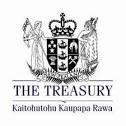
The Treasury has strengthened its fortune-telling capabilities through the integration of official data and is able to predict 15 to 24 year olds at risk of poor outcomes in adulthood.
The Treasury report entitled “Using Integrated Administrative Data to Identify Youth Who Are at Risk of poor Outcomes as Adults” identifies a range of characteristics that are ‘predictive of future poor outcomes’. These include:
- early contact with government agencies ie CYF
- demographic and geographic location (The Far North, Kawerau, Opotiki and Wairoa are singled out as place where youth at risk tend to be concentrated).
- characteristics of the young person’s caregiver
- early outcomes data from the education, corrections, welfare and health systems
Some might say this knowledge has been around well before analytics became the new policy must have.
Our member agencies have long observed in their communities children living in material hardship and experiencing harm growing into struggling adolescents and then adults with vulnerable children of their own. Here, the knowledge of inter-generational poverty is lived and breathed and the Treasury report is likely to reveal few new insights to those at the receiving end.
It is a different story for those able to keep poverty at arm’s length and who are in need of understanding. The report may well add value to this group.
Alongside this new focus on integrated data, is an increased expectation that targeted social investment will improve the lives of individual people without necessarily addressing the underlying reason for uneven economic growth.
Time will tell on this one but at the very least we will have a vast array data to look at.
Related commentary:
Ara Taiohi, the peak body for the youth sector, endorses the need for a strength-based approach to changing inequitable outcomes for young people regardless of where they live but says “This report uses information collected across government to represent our young people as victims of geography, rather than focussing on an economy that is leaving them behind.”
